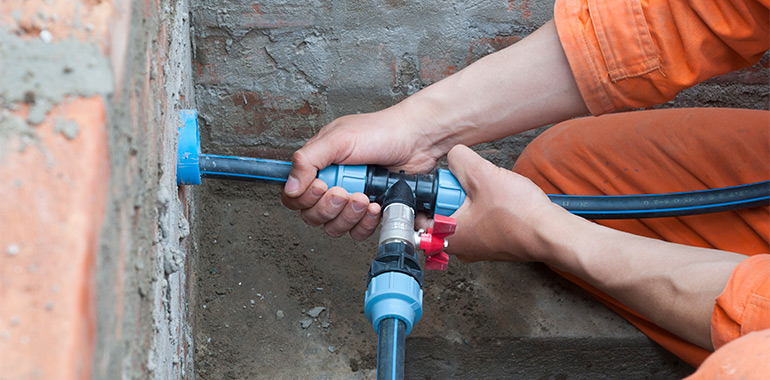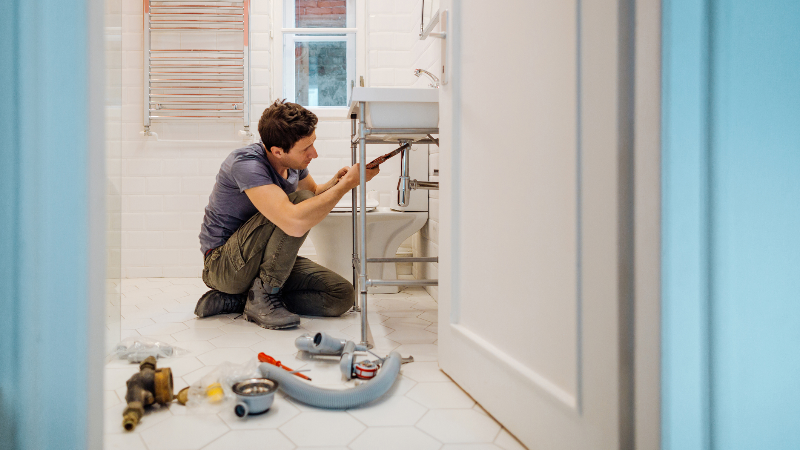Quick Response to Plumbing Crisis
Quick Response to Plumbing Crisis
Blog Article
Almost everyone is bound to have his or her own theory when it comes to How to Deal With a Plumbing Emergency.

Everybody will need to manage a plumbing emergency at some point in our lives, so while you may be wallowing in self-pity asking "why me?", the real inquiry to ask yourself is 'what currently'?
What Counts As Emergency Plumbing
While a plumbing emergency isn't exactly one-size-fits-all, there can be lots of telltale indications of a plumbing emergency. Basically a plumbing emergency is any plumbing-related problem that can create damages to a home or its inhabitants.
A couple of identifying indicators of a plumbing emergency that we will go over are as complies with; low or no water pressure, water not warming effectively, an overruning bathroom. If your emergency does not fit any one of these descriptions but you still believe could be harmful for you or your home never ever hesitate to call an emergency plumber or your building management if appropriate.
Low Or No Water Pressure
A case of low water pressure, or no water pressure, must be extremely easy to recognize while the source of the problem may be a lot more evasive. If water is just barely appearing of your faucet, or not in all, then you also have been affected by this usual issue, yet what can you do regarding it?
Start by identifying all of the areas that your water pressure is moistened, you can do this by going with your home as well as turning on all the taps to see just how solid the stress is in each space of the home. If just one faucet has low pressure initially attempt cleaning up the display before seeking an expert.
Water Not Home Heating Correctly
If your water is running yet you can't get it warm enough to have a bathroom or even conveniently wash your hands there might be a problem with your plumbing's heater. This is normally a problem that can be fixed in a matter of mins. First, inspect the breaker button for the water heater in your fuse panel to ensure it hasn't been tripped, if it has merely snap it right into the off setting and also back on once again. If the breaker hasn't been stumbled, the concern could be with the heating element for your hot water heater, in this case, it's ideal to call a specialist to test, and also possibly change the bad aspect.
Overflowing Commode
This typical trouble is generally an outcome of one of 3 things; a stopped up drainpipe, malfunctioning float, or blocked air vent pipe. The very first of which is one of the most typical, this problem can normally be settled with a plunger, but in some cases can need a "serpent" in which case it's possibly best to call a plumber. Next off, taking care of a malfunctioning float can in some cases be as basic as shaking the flush deal with or eliminating the cover on the back of the toilet to investigate the issue further. Finally, an obstructed air vent pipeline can be difficult business that may require adding or cutting to pipes so best to call a plumber for this issue also.
Last Resource For Plumbing Emergencies
Never be reluctant to call a specialist regardless of the matter if you're not sure it certifies as a plumbing emergency, much better to be risk-free than sorry as the stating goes. There is no shortage of plumbing company, most of which are 24/7 so feel free to call day or evening to maintain you and also your home secure.
Beginning by recognizing all of the locations that your water stress is moistened, you can do this by going with your residence as well as turning on all the faucets to see exactly how solid the pressure is in each area of the residence. If only one tap has low pressure first attempt cleansing the display before seeking an expert.
If your water is running however you can not obtain it warm enough to have a bathroom or also conveniently clean your hands there might be a concern with your plumbing's home heating system. Check the breaker button for the water heater in your fuse panel to ensure it hasn't been tripped, if it has just flip it into the off position and back on again. If the breaker hasn't been tripped, the problem can be with the home heating element for your water heating system, in this case, it's ideal to call a specialist to test, and possibly change the negative component.
How to Handle Emergency Plumbing Situations at Home
Odds are that if you’ve lived in your home for long enough, you’ve come across one or more plumbing emergencies, such as:
clogged toilets; leaky pipes; backed-up drains; discolored or odd-smelling water; and low water pressure. Some of these emergency plumbing situations are easier to fix than others. Most people know how to plunge a toilet, but finding and replacing a damaged section of pipe is harder for most.
For many plumbing emergencies, time is of the essence. The longer a problem goes unaddressed, the worse the damage can get.
This is why many people hire professionals to quickly find and fix major plumbing emergencies. A professional usually has the tools and experience to quickly identify a problem and make lasting repairs.
But, you can’t always wait for a professional service. Or, you might want to try to reduce costs by fixing the problem yourself. For some less severe emergencies, DIY repairs are a perfectly valid option.
Learn Where Your Plumbing Cutoffs Are Located
One of the most important things you can do to fix a plumbing problem is to be as familiar with your plumbing system as possible. A basic piece of information you should know before starting to fix many plumbing problems is where the cutoffs/isolation valves for your water pipes are located throughout the home.
For some plumbing repairs, you may need to access or even remove pipes, and you can’t do that safely with water running through them. Knowing where you can shut off the flow of water is important for making repairs.
Additionally, learn how to shut off the water heater, and turn it off before removing any pipes, even if you “know” you won’t be messing with the hot water line. Accidentally opening the hot water line with the heater engaged could result in severe burns.
A bucket
Useful for catching spilled water under a leaky pipe or pipe that you’re working on as well as a tool caddy.
Plungers (cup and forced cup)
Forced cup plungers excel at unclogging toilets, while cup plungers are handy for forcing sink blockages through the line.
Multi-bit screwdriver or screwdriver set
Helpful for assembling disassembling certain pipe assemblies and surrounding cabinetry.
https://www.expresssewer.com/blog/diy-how-to-handle-emergency-plumbing-situations-at-home

Do you appreciate reading about What to Do in a Plumbing Emergency? Place a remark directly below. We'd be delighted to find out your feelings about this blog post. We hope to see you back again soon. Enjoyed reading our post? Please share it. Let someone else locate it. Thanks a bunch for your time. Don't forget to come visit our blog back soon.
Need help? Dial now. Report this page